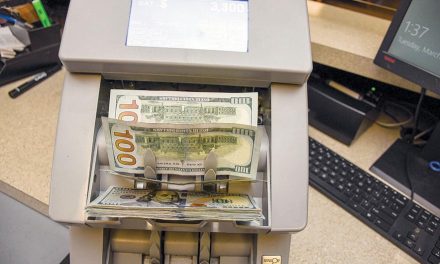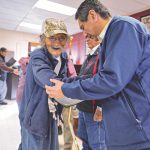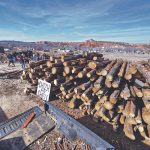
Council helps COVID-impacted enterprises
WINDOW ROCK
Navajo enterprises were given a helping hand by the Navajo Nation Council after lawmakers voted to approve an $18.7 million supplemental appropriation from the Unreserved, Undesignated Fund Balance to be split between the businesses.
It’s been almost a year since the Navajo Commission on Emergency Management, with concurrence of President Jonathan Nez, declared a public health state of emergency accompanied by a slew of orders to the tribe’s enterprises, with some being closed or restricted.
The Navajo Gaming Enterprise, Navajo Tribal Utility Authority, Navajo Nation Shopping Centers, Navajo Engineering and Construction Authority, Navajo Nation Hospitality Enterprise and Navajo Arts and Crafts were all impacted, making it difficult for them to fulfill their purpose of generating revenue and providing employment for the Navajo people.
“Navajo Nation enterprises have worked with Navajo leaders to reduce the spread of COVID-19 by closing their operations or restricting their operations to essential employees,” the resolution states.
“As a result of closures caused by the COVID-19 pandemic, the Navajo Nation enterprises are struggling to meet financial business obligations and keep employees in the work force,” it continues. In order to help these struggling enterprises, Council voted to approve the appropriation of $18.7 million to be divided among the enterprises.
Navajo Gaming, which had to lay off approximately 1,000 mostly Navajo workers, requested $15 million; Navajo Shopping Centers requested $296,241; Hospitality Enterprise requested $1.4 million; and NACE requested $2 million.
As of January the UUFB had $64.7 million. “The payroll and benefits would be for bringing all of our staff back from layoff and continuing to fund our health care plan,” explained Brian Parrish, director of Navajo Gaming, on where the dollars would go. “Those monies would go to return all our staff, get them back, have them go through a three-hour classroom training on our COVID training protocols, and prepare for reopening the enterprises once we receive approval from leadership,” he said.
Health, Education and Human Services Committee Chair Daniel Tso was one of a few delegates who questioned Navajo Gaming’s request.
Last year Navajo Gaming received more than $20 million in Coronavirus Aid, Relief and Economic Security Act funding and he was concerned the enterprise was asking for dollars through the UUFB. “You presented calculations that the committee and Council believed would satisfy your needs,” said Tso. “Now you come back for monies for almost the same purpose. What kind of assurance can you give to the committee that your calculations are spot-on this time?” Parrish said they are hoping the vaccine rollout will be far enough along by March that the casinos will be able to reopen.
Although they have a safety strategy ready, Parrish said if they were to open at 25% capacity they wouldn’t generate enough revenue to make a profit.
But if they were able to operate at 50% capacity they would have a positive profit at $1.9 million in the first month and this will help keep them from having to come back for additional funding from Council.
“Gaming Enterprise is not the only one asking for this money,” said Resource and Development Chair Rickie Nez. “It’s shopping centers … there’s Hospitality Enterprises … we have all these enterprises. Not one has come before Council. They didn’t beg us for money. They were labeled non-essential businesses.”
Irked by some of his colleagues’ comments about Navajo Gaming, Nez said Council was “on a roll” when it comes to shutting down money-generating businesses such as Navajo Generating Station and Kayenta Mine, and so they might as well shut down gaming. “We’ll be known as 24th Shutting Down Things (rather than the 24th Council),” said Nez. “Then we talk about economics. If we are going to come up with a plan for economic development, let’s start today. We have a lot of Navajos working there.”
Budget and Finance Committee member Amber Crotty motioned to table the resolution until hazard pay for Navajo Nation employees was approved. This motion failed. “I think what this legislation represents is our gaming institution needs to be re-evaluated,” said Crotty. “Time and time again we constantly, as a Council, are asked to subsidize gaming.
“There needs to be a thorough assessment of gaming on the Navajo Nation,” she said. “I think the Nation in terms with its relationship with gaming should be dramatically different.”
The resolution passed with an 18-5 vote.
As a public service, the Navajo Times is making all coverage of the coronavirus pandemic fully available on its website. Please support the Times by subscribing.
How to protect yourself and others.
Why masks work. Which masks are best.
Resources for coronavirus assistance








 Highway 264,
Highway 264, I-40, WB @ Winslow
I-40, WB @ Winslow